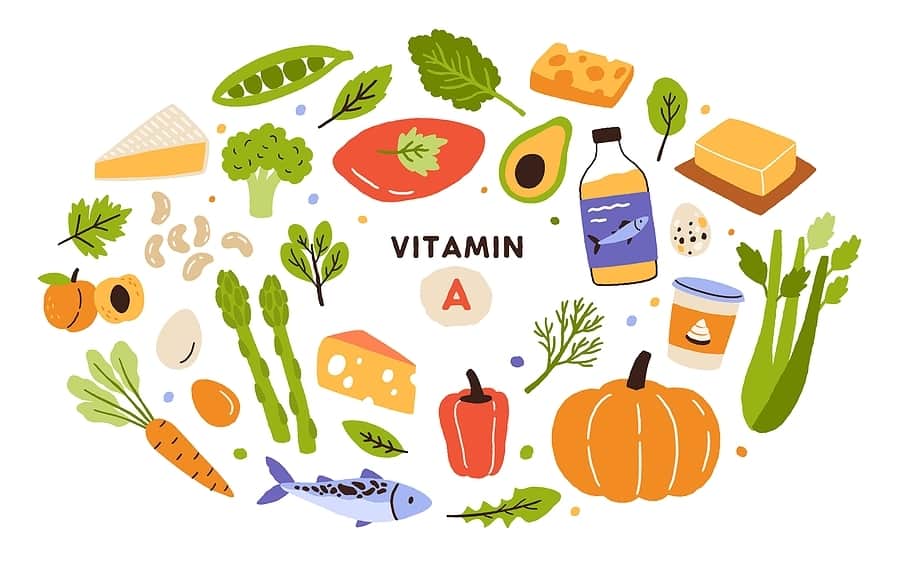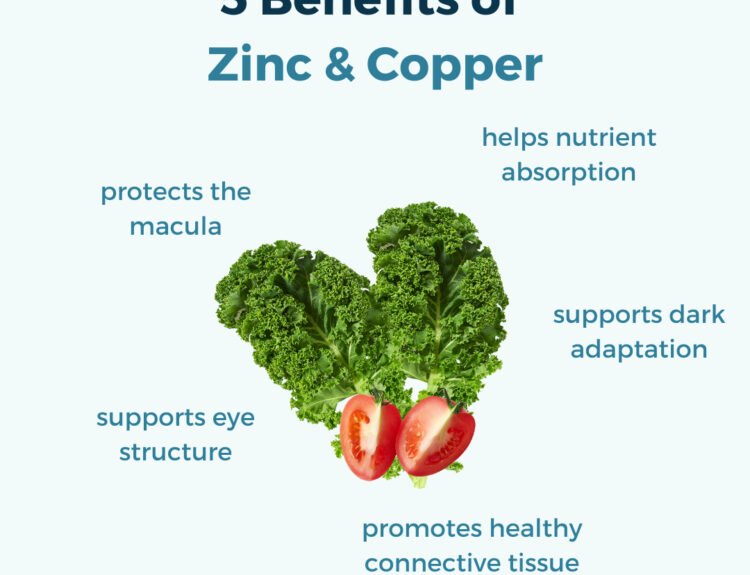Vitamin A is a crucial fat-soluble vitamin that plays a vital role in maintaining vision, immune function, skin health, and overall growth and development. Unlike water-soluble vitamins, vitamin A is stored in the liver, meaning that both deficiency and excess can have significant health implications. This article explores the importance of vitamin A, its sources, benefits, deficiency risks, and recommended intake.
Types of Vitamin A
Vitamin A exists in two primary forms:
- Preformed Vitamin A (Retinoids) – Found in animal products such as liver, fish, eggs, and dairy. The active forms include retinol, retinal, and retinoic acid.
- Provitamin A (Carotenoids) – Found in plant-based foods like carrots, sweet potatoes, and leafy greens. The most common carotenoid is beta-carotene, which the body converts into retinol.
Key Benefits of Vitamin A
1. Supports Vision and Eye Health
Vitamin A is essential for maintaining healthy eyesight. It contributes to:
- The production of rhodopsin, a pigment in the retina that helps with low-light and color vision.
- Preventing night blindness and reducing the risk of age-related macular degeneration (AMD).
2. Boosts Immune Function
Vitamin A strengthens the immune system by:
- Maintaining the integrity of skin and mucous membranes (first line of defense against pathogens).
- Supporting the production and function of white blood cells, which fight infections.
- Reducing the severity of illnesses like measles and respiratory infections.
3. Promotes Skin Health and Cell Growth
- Essential for skin repair and preventing dryness, acne, and psoriasis.
- Used in dermatology as retinoids (e.g., retinol, tretinoin) to treat acne and wrinkles.
- Supports wound healing by promoting collagen production.
4. Essential for Growth and Reproduction
- Crucial for fetal development during pregnancy, particularly for the eyes, lungs, and organs.
- Supports reproductive health in both men and women by aiding sperm production and regulating hormones.
5. Acts as a Powerful Antioxidant
- Carotenoids (like beta-carotene) neutralize free radicals, reducing oxidative stress and lowering the risk of chronic diseases (e.g., heart disease, cancer).
Sources of Vitamin A
Animal-Based Sources (Retinoids)
- Liver (beef, chicken)
- Fish liver oils (cod liver oil)
- Eggs
- Dairy products (milk, cheese, butter)
Plant-Based Sources (Carotenoids)
- Carrots
- Sweet potatoes
- Spinach and kale
- Red bell peppers
- Mangoes
- Apricots
Vitamin A Deficiency: Causes and Symptoms
Deficiency is a major public health issue, particularly in developing countries. Common causes include:
- Poor dietary intake (lack of animal products or colorful vegetables)
- Malabsorption disorders (celiac disease, Crohn’s disease)
- Liver disorders (impairs storage of vitamin A)
Symptoms of Deficiency
- Night blindness (early sign)
- Dry eyes (xerophthalmia) leading to corneal ulcers and blindness
- Weakened immunity, increasing susceptibility to infections
- Skin issues (dryness, hyperkeratosis)
- Delayed growth in children
Vitamin A Toxicity (Hypervitaminosis A)
Excessive intake (usually from supplements or animal-based sources) can lead to:
- Acute toxicity: Nausea, dizziness, headaches
- Chronic toxicity: Liver damage, bone pain, hair loss, birth defects (if taken in excess during pregnancy)
- Carotenemia (harmless): Yellowing of skin from excessive beta-carotene (not toxic but noticeable)
Recommended Daily Intake
The Recommended Dietary Allowance (RDA) varies by age and gender:
- Men: 900 mcg RAE (Retinol Activity Equivalents)
- Women: 700 mcg RAE
- Pregnant women: 770 mcg RAE
- Breastfeeding women: 1,300 mcg RAE
*Note: 1 mcg retinol = 12 mcg beta-carotene from food.*
Conclusion
Vitamin A is indispensable for vision, immunity, skin health, and growth. While deficiency can lead to severe health issues, excessive intake (especially from supplements) can also be harmful. A balanced diet with both animal and plant sources ensures optimal vitamin A levels. If you suspect a deficiency or are considering supplements, consult a healthcare provider for personalized advice.
By understanding and prioritizing vitamin A intake, you can safeguard your long-term health and well-being.



